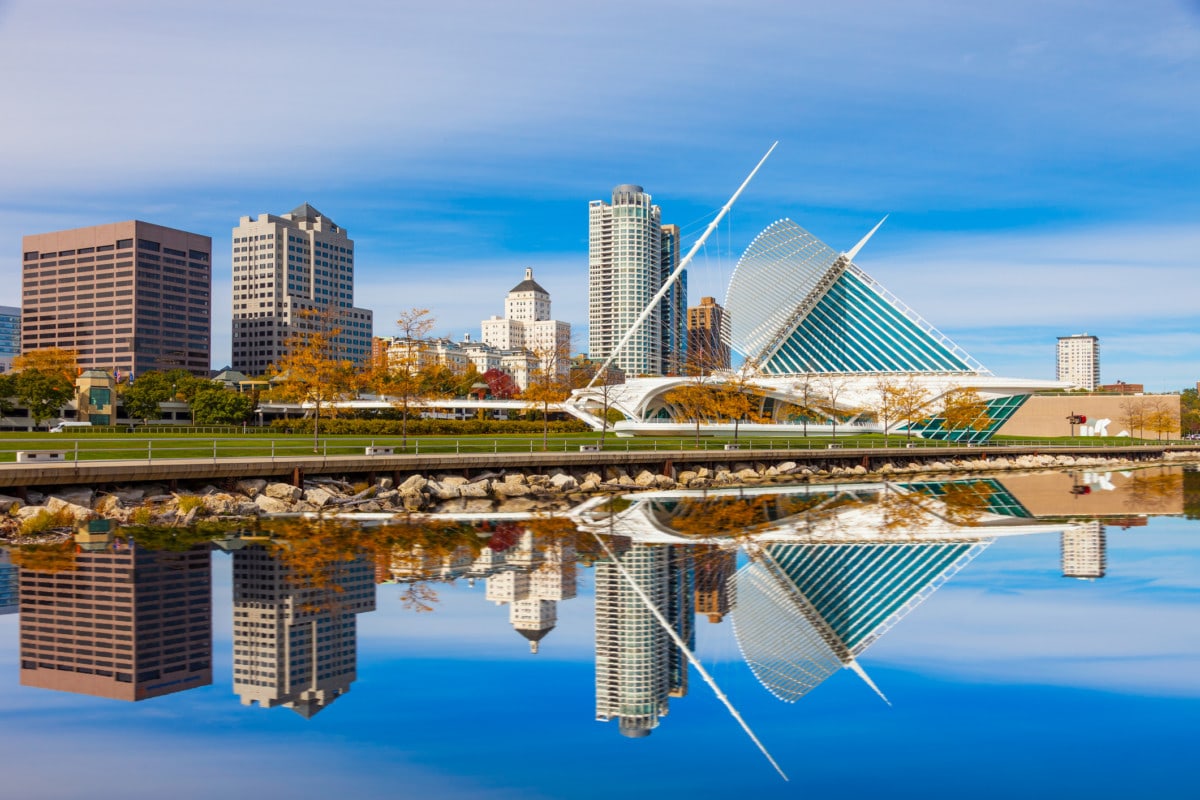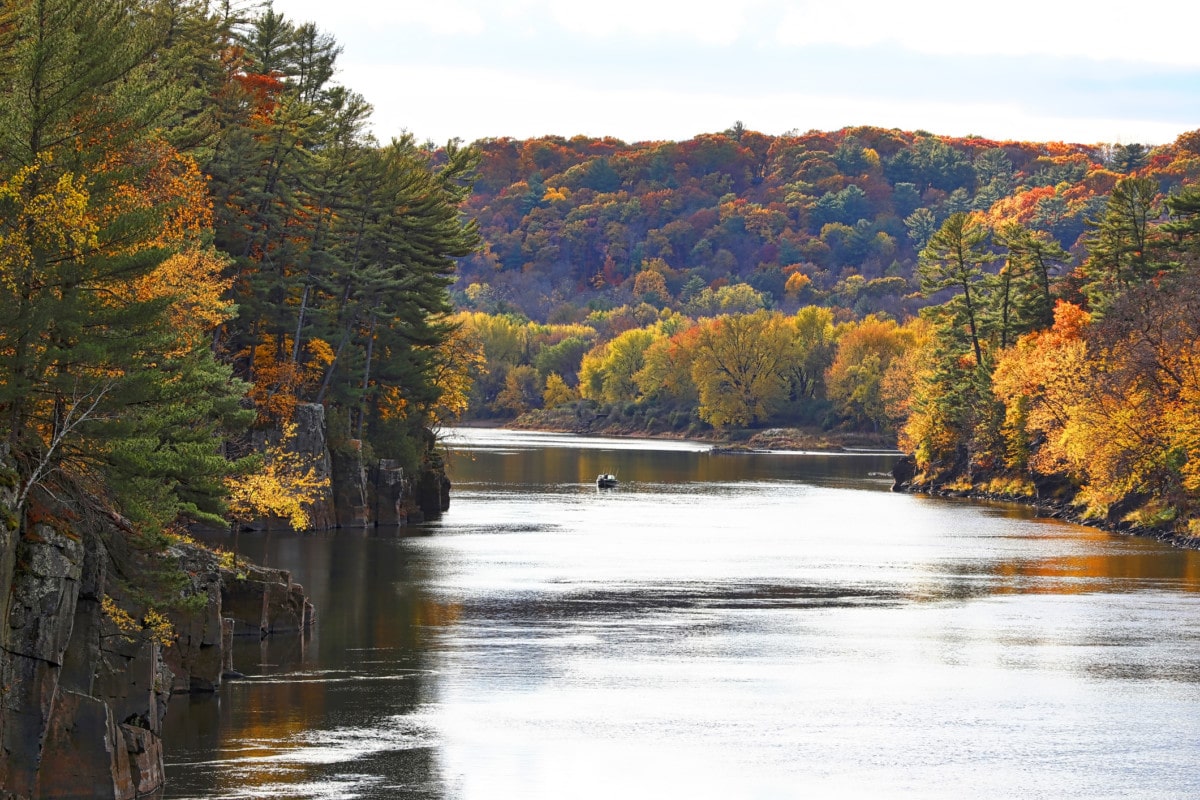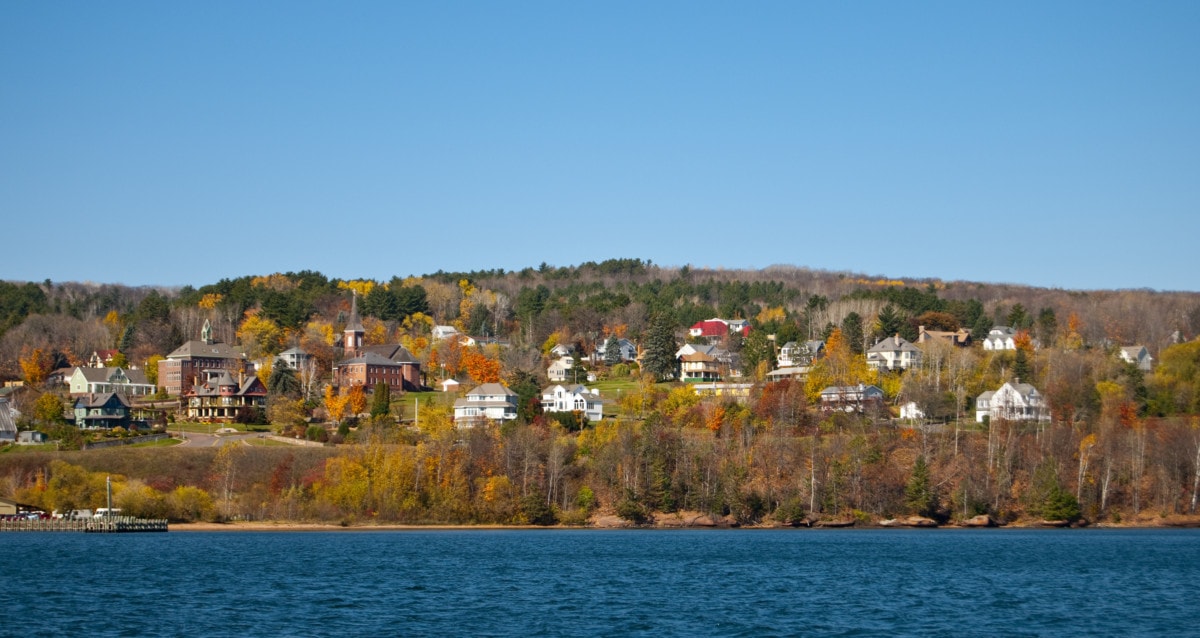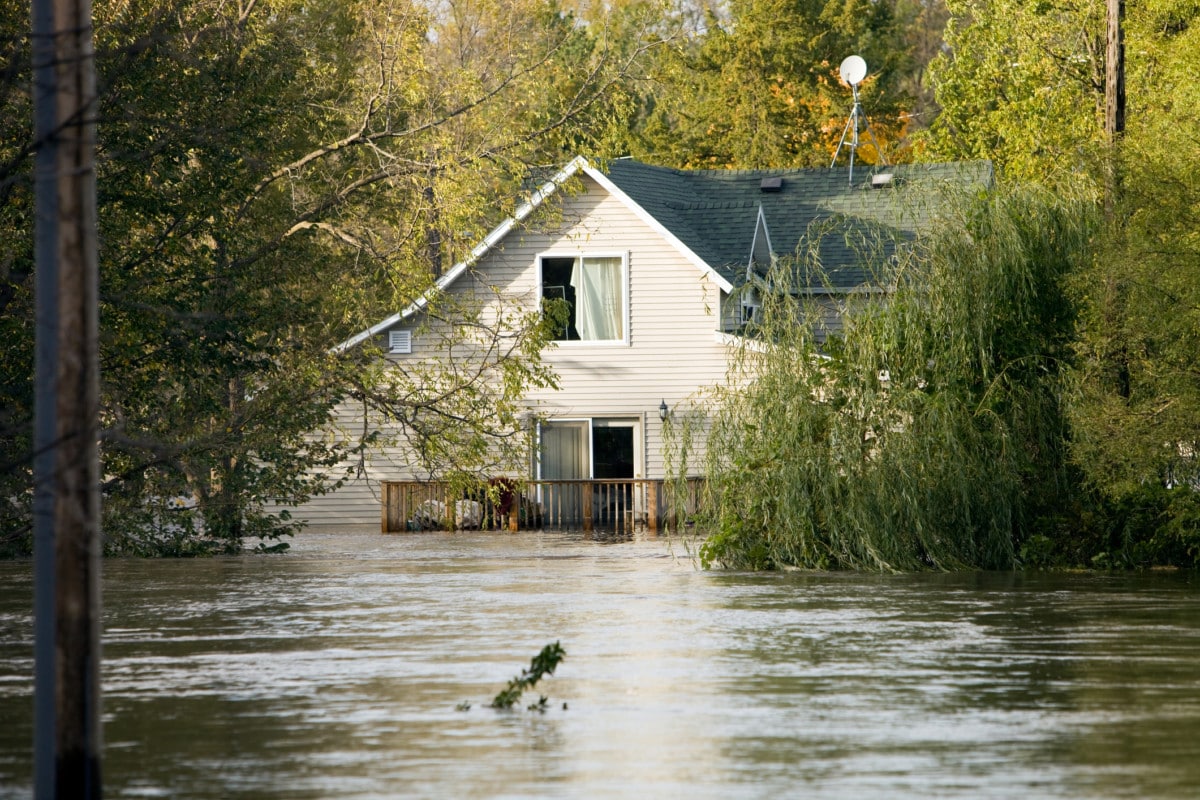Welcome to Wisconsin, the state of endless possibilities and remarkable experiences. Living in The Badger State means enjoying four seasons, stunning natural beauty, and a vibrant culture celebrating tradition and innovation. From bustling cities like Milwaukee to quaint small towns like Janesville, Wisconsin offers a unique mix of urban and rural lifestyles that cater to different preferences. And although there are great reasons to live here, you’ll want to consider the pros and cons of living in Wisconsin before moving. So whether you’re looking for homes for sale in Madison, an apartment in Milwaukee, or you just want to learn more about the area, read on for the pros and cons of living in Wisconsin.

Pros of living in Wisconsin
1. Wisconsin has four seasons to enjoy
Wisconsin is known for experiencing all four seasons throughout the year, with distinct changes in weather and landscape. Spring brings blossoming flowers, budding trees, and warmer temperatures averaging 40-50 degrees Fahrenheit. Summer offers sunny days, warm nights, and opportunities for outdoor activities like boating, fishing, and hiking and averaging around 70-80 degrees Fahrenheit. Fall in Wisconsin is particularly beautiful, with vibrant foliage, cool weather, and harvest festivals. And although winter can be harsh with heavy snowfall and frigid temperatures, it also brings opportunities for winter sports like skiing, snowmobiling, and ice fishing. Living in Wisconsin, with four distinct seasons, allows for a range of outdoor activities and experiences, making it a pro for those who enjoy a variety of seasons and weather conditions.
2. The cost of living is low in Wisconsin
Wisconsin is known for having a relatively low cost of living compared to other states in the US. Housing costs, in particular, are relatively affordable, with a median home sale price of $260,100. You can find affordable rent throughout Wisconsin as well. Apartments in Green Bay average around $1,350 for a two-bedroom apartment. And for apartments in Kenosha, you can find rent averaging around $1,259 for a two-bedroom. Wisconsin is home to many charming cities that will fit anyone’s lifestyle.

3. There is no shortage of beauty in The Badger State
If you’re looking for reasons to move to Wisconsin, you’ll have to consider its natural beauty. The Badger State’s diverse landscape includes rolling hills, vast forests, sparkling lakes, and winding rivers. Around 15,000 lakes provide ample opportunities for fishing, boating, and swimming, while the expansive forests offer hiking, camping, and wildlife watching. Wisconsin has several state parks and natural areas, including the stunning Apostle Islands National Lakeshore and the majestic Door County Peninsula. Living in Wisconsin means being surrounded by breathtaking natural scenery that is both inspiring and refreshing, providing endless opportunities for outdoor adventure and exploration.
4. The sport culture is thriving
If you’re into sports, you’ll be happy to know that Wisconsin is known for its strong sports culture, with several professional and collegiate sports teams calling the state home. The Green Bay Packers are one of the most beloved football teams in the country, and their fans, known as “Cheeseheads,” are passionate and dedicated. Wisconsin is also home to the Milwaukee Brewers baseball team, the Milwaukee Bucks basketball team, and the Wisconsin Badgers collegiate sports teams.

5. Wisconsin has a thriving food scene
Wisconsin has a food scene rooted in its agricultural heritage and diverse cultural influences. Known for its cheese production, with many award-winning cheese makers calling Wisconsin home. Wisconsin is famous for its brats, beer, and Friday fish fry tradition. Many farm-to-table restaurants, farmer’s markets, and food festivals offer locally sourced and artisanal foods. Wisconsin’s food scene also showcases the state’s cultural diversity, with restaurants offering traditional dishes worldwide, including German, Scandinavian, and Hmong cuisine. Living in Wisconsin means having access to a rich and diverse food culture, with opportunities to sample and savor delicious foods from across the state and around the globe.
Cons of living in Wisconsin
1. Prepare yourself for long harsh winters
Wisconsin’s long and harsh winters can be challenging to live in the state. Winters in Wisconsin typically last from November to March and are characterized by heavy snowfall, freezing temperatures, and strong winds. The cold weather can make daily activities such as commuting and running errands more difficult and time-consuming. Additionally, snow and ice accumulation can create hazardous driving conditions and cause power outages. The harsh winter weather can also limit outdoor activities and make it challenging to stay active and healthy during winter. You’ll want to prepare your home for winter to ensure your safety.

2. Property taxes in Wisconsin are high
The property taxes in Wisconsin are among the highest in the country. At 1.51%, Wisconsin is ranked the eighth-highest by average. The increased property taxes are due to Wisconsin’s unique system of funding local governments, which relies heavily on property taxes. This means that homeowners in Wisconsin can face higher property taxes than in other states with different funding systems. High property taxes can make it more difficult for homeowners to afford their homes. Consider using tools like an affordability calculator to know how much you can afford in different areas.
3. You’ll want bug spray for the mosquitos and ticks
Wisconsin is known for having a significant population of mosquitoes and ticks, particularly during summer. Mosquitoes can transmit diseases like the West Nile virus, while ticks can carry Lyme disease and other illnesses. The prevalence of these pests can limit outdoor activities and require extra precautions, such as wearing protective clothing and using insect repellent. Additionally, controlling the mosquito and tick population can be challenging, and efforts to eradicate these pests can sometimes involve using pesticides that may negatively affect the environment and human health.

4. Prepare yourself for the natural disasters
The Badger State is vulnerable to various natural disasters, including severe storms, tornadoes, floods, and wildfires. These events can cause significant property damage, disrupt daily life, and pose risks to personal safety. Flooding is a particular concern in Wisconsin, with many areas experiencing substantial flooding in recent years due to heavy rainfall and melting snow. It is essential for residents to stay informed about the risks of natural disasters and to have emergency plans in place to protect themselves and their families.
5. Wisconsin has high levels of pollen
High levels of pollen and mold are a common problem in Wisconsin during certain times of the year, making it problematic for people with allergies. Spring and summer are challenging for allergy sufferers in Wisconsin, as grass, tree, and weed pollen levels are high. Mold levels can also rise due to the high humidity and precipitation in the region. Allergies can cause various symptoms, including sneezing, coughing, congestion, and eye irritation, which can interfere with daily life and productivity.
Pros and cons of living in Wisconsin: Bottom line
It’s essential to weigh the pros and cons of living in Wisconsin before moving there. While the state offers many benefits, such as natural beauty, a strong sense of community, and a low cost of living, there are also potential downsides, such as harsh winters and high property taxes. Moving to Wisconsin should be based on individual preferences and priorities. By carefully considering the pros and cons, one can make an informed decision and ensure a successful transition to life in The Badger State.







